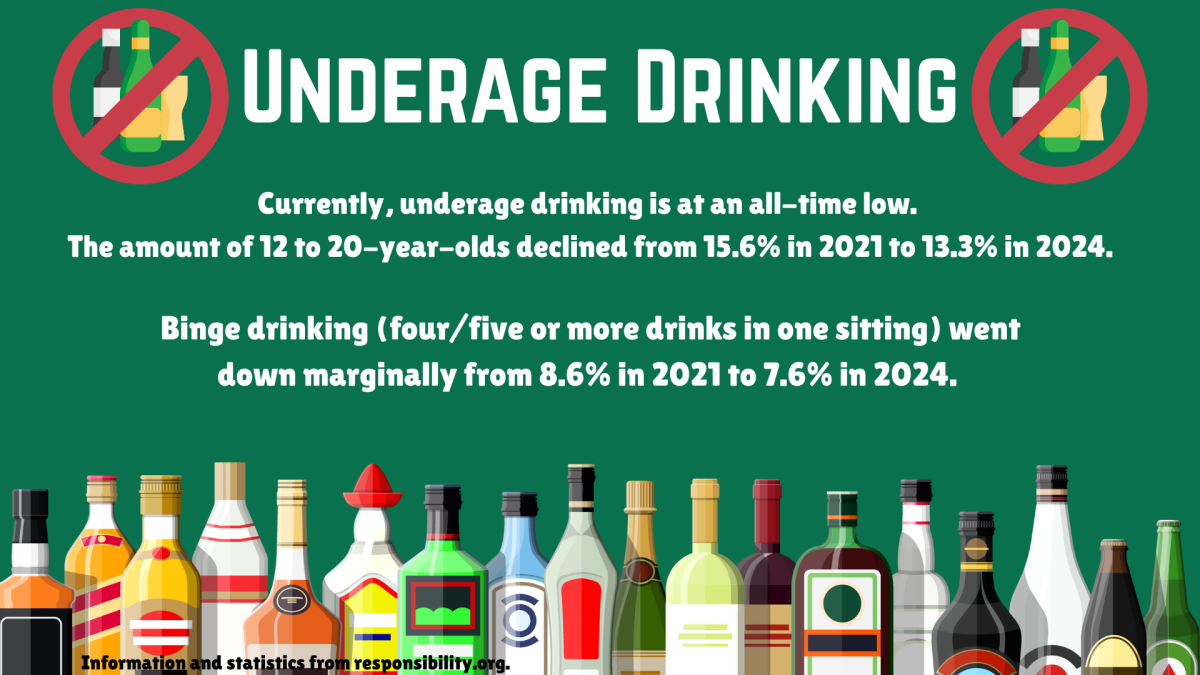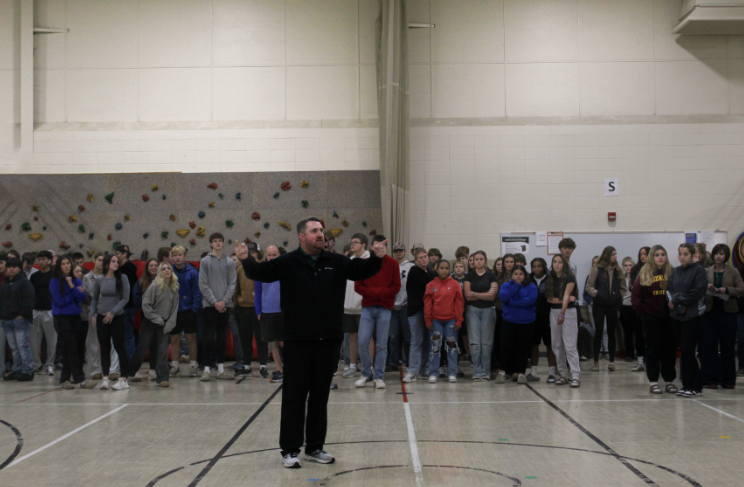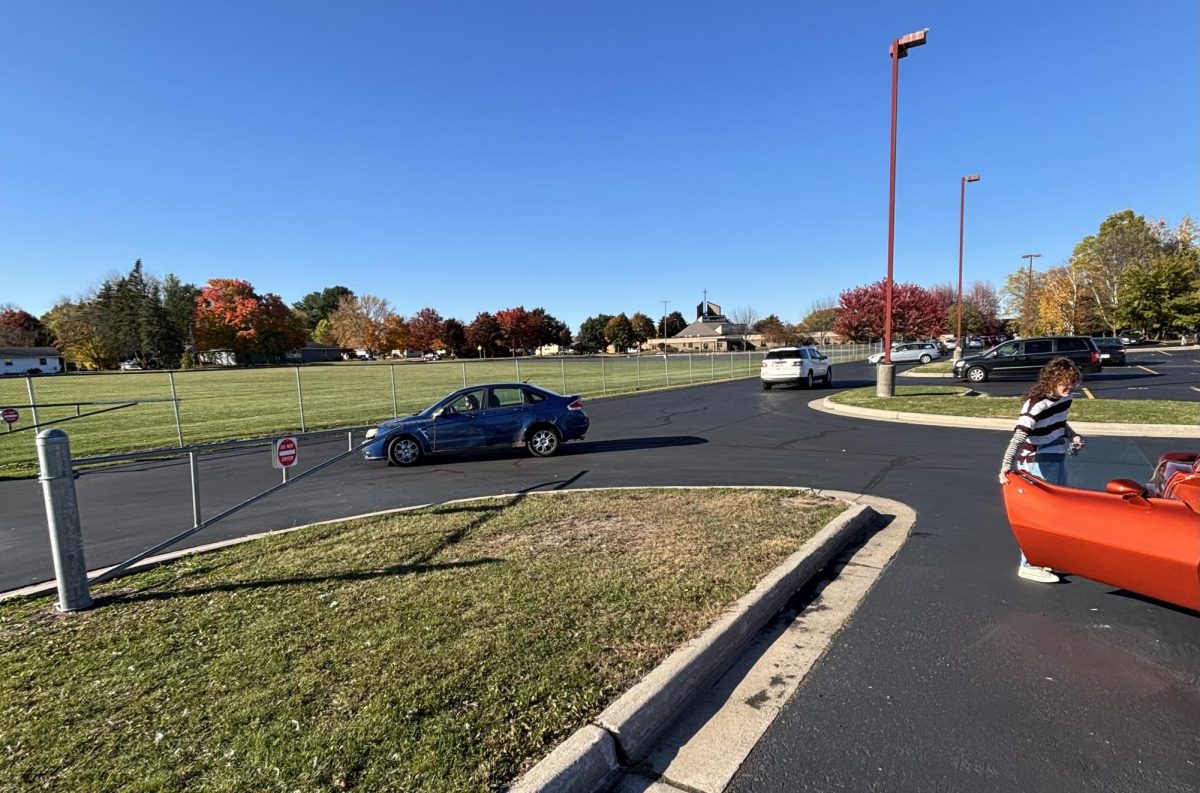Underage drinking has been in decline in recent years. Currently, the amount of underage drinking has hit a national low.
“Past month consumption among 12- to 20-year-olds declined almost 15% proportionally from 15.6% in 2021 to 13.3% in 2024. Current consumption among underage persons is at an all-time low,” Responsibility.org states.
Binge drinking has also been on a small reduction according to national statistics.
“Underage binge drinking rates (four or more drinks on the same occasion on at least one day in the past month) remained relatively unchanged from 8.6% in 2021 to 7.6% in 2024,” Responsibility.org states.
Because teens are still developing, alcohol affects them more strongly, making the risks of damage worse, especially when the brain is changing and growing.
“Teens feel the effects of alcohol faster and stronger than an adult due to their brain and body development. The same amount that might affect an adult a little can affect a teen a lot,” school nurse Sara Miller said.
Underage drinking can, and usually does, cause lasting damage, as teens’ bodies and minds are still developing.
“The more you drink, both in quantity and frequency, the greater the risk of damage to your body, including the liver, stomach and heart,” Miller said. “Alcohol can also cause permanent changes in brain function, such as your memory and how you process information, especially in cases where it causes an accident or alcohol poisoning.”
While underage drinking is at a record low on a national scale, the same can’t be said for Berlin as more citations for underage drinking have been issued so far this year compared to last year.
“In 2024, we had seven citations issued for underage drinking. In 2025 so far, we have issued 16 citations for underage drinking,“ school resource officer Zach Plath said.
Law officers deal with incidents differently, mainly by the severity of the situation and the conditions.
“Underage drinking is dealt with on a case-by-case basis based on the situation and the totality of the circumstances,” Plath said. “For example, someone could be underage, consume alcohol, and operate a motor vehicle under the influence. The individual may not be cited for underage drinking but arrested for OWI.”








